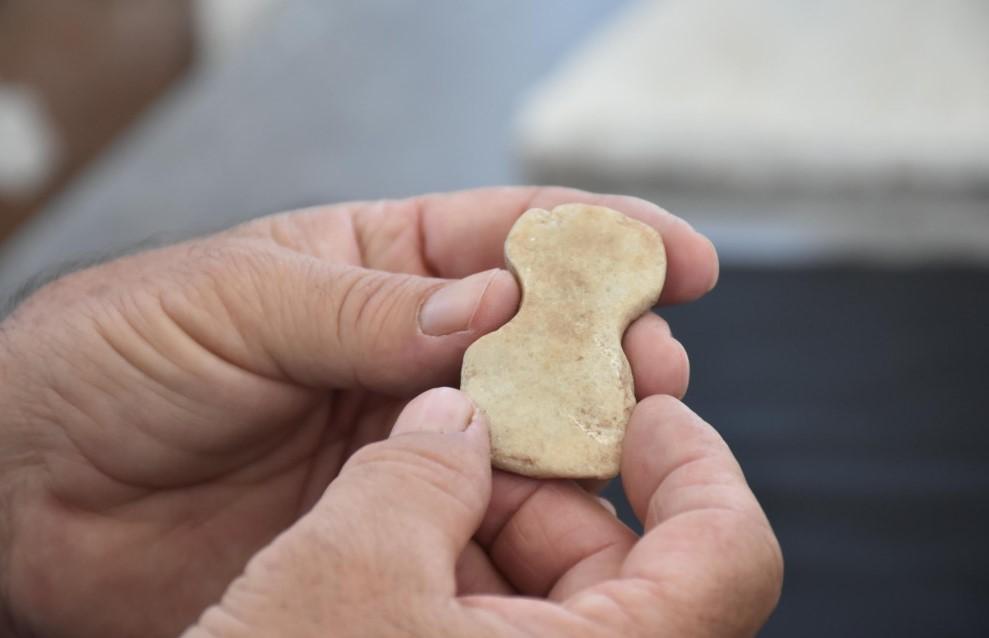Marble idol found in İzmir
İZMİR

A 5,000-year-old marble idol has come to light during works carried out in the Yeşilova and Yassıtepe mounds in the Aegean province of İzmir’s Bornova district.
“This is a commercial center similar to Troy. Their idols, pottery and traditions are similar. What we found is a 6-7 centimeters tall, thin artifact,” said Associated Professor Zafer Derin, a faculty member at Ege University’s Department of Archeology.
Excavations in the Yeşilova and Yassıtepe mounds continue with the support of the Culture and Tourism Ministry, the İzmir Metropolitan Municipality, the Bornova Municipality and Ege University. Nine villages have so far been unearthed in the 8,500-year-old city. From the remains of thousands of years ago in the city, such as sea bream, poisonous stingray, sea urchin, oysters and mussels, it was determined that the first people of İzmir consumed seafood, especially mussels, just like the inhabitants of today’s city.
Recently, a 5,000-year-old marble idol was found in Yassıtepe Mound, one of the places where the first people of İzmir lived.
Speaking about the idol, Derin said, “In Yassıtepe, we excavate the area of the commercial urbanization site of İzmir from 5,000 years ago. So far, we have come across many commercial and religious finds here. One of them is a marble idol that we found this year. It is an original work of the Western civilization. It is a portable object. A continuation of ‘mother goddess worship’ since the Neolithic period. That’s why it is important. The center of Yassıtepe Mound is one of the first settlements established in terms of urbanization. It is a commercial center similar to the ancient city of Troy. These two places are similar in terms of idols, pottery and traditions.”
“Western civilization uses marble very well. They turned this marble into a goddess and kept it with them in their house to bring fertility and health,” Derin added.
















